Why We’re Fighting Trump on Multiple Fronts to Protect the Arctic
The administration wants to maximize oil and gas drilling in Arctic regions of the U.S. We’re in court to stop them.
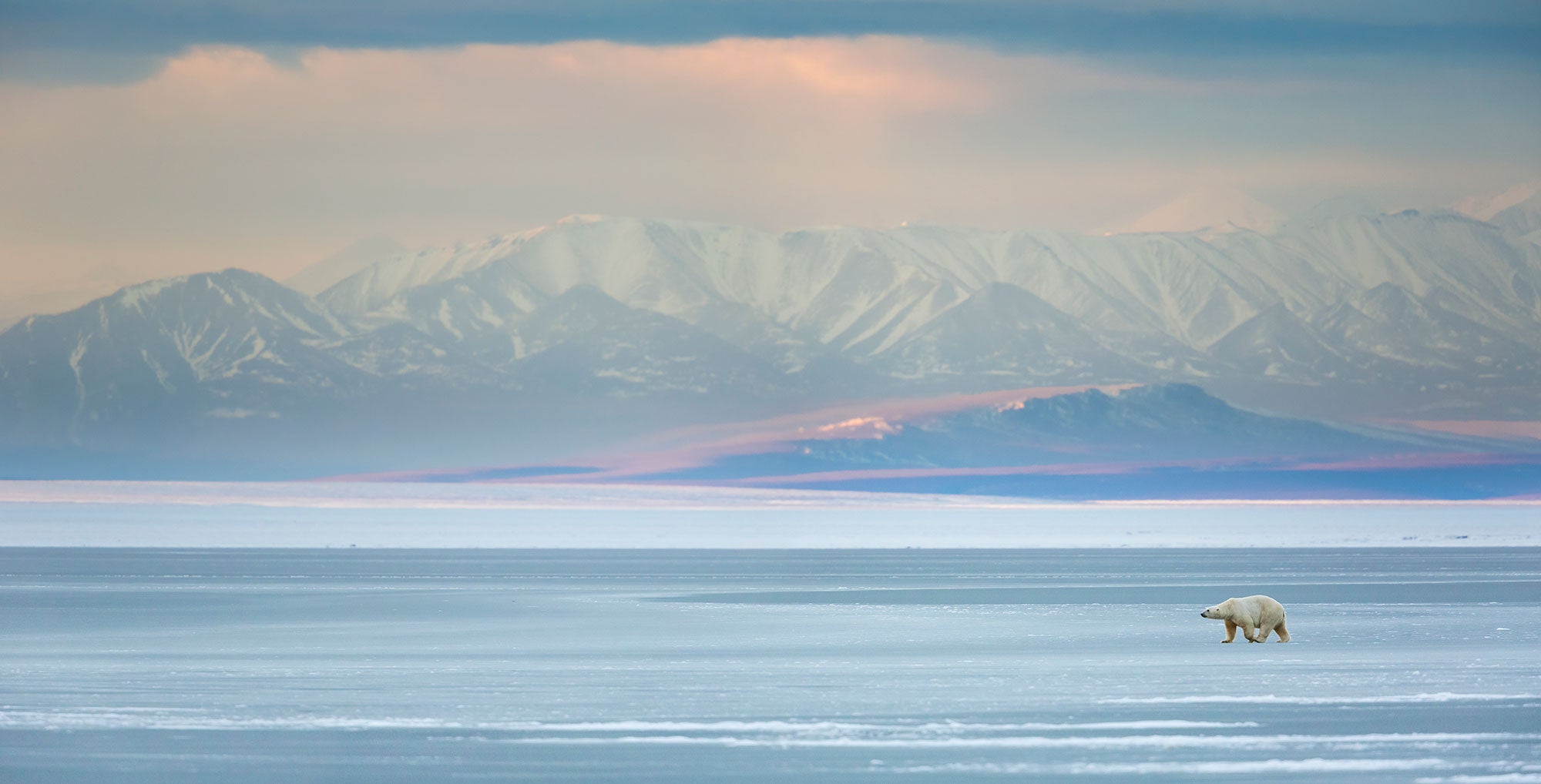
The Trump administration is continuing its all-out assault on public lands and waters in Alaska’s Arctic to maximize oil and gas drilling for the benefit of corporate polluters.
Earthjustice has spent decades fending off oil and gas drilling proposals in the region’s most sensitive landscapes to protect irreplaceable ecosystems, traditional ways of life, and our planet. Most recently, we filed a lawsuit challenging the Bureau of Land Management’s 5.5-million-acre lease sale in the Western Arctic.
By fighting to keep fossil fuels in the ground in Alaska and elsewhere, we are helping to rein in a worsening climate crisis that is warming the Arctic nearly four times faster than anywhere else. Alaska needs ways to power its economy that respect its lands and people – not this.
Now this work is more urgent than ever. Across the Western Arctic and to the east in the Arctic National Wildlife Refuge, the Trump administration and fossil-fuel allies in Congress have opened more than 19 million acres for oil and gas extraction. Millions of acres of critical wildlife habitat, including sensitive areas that have never been developed or targeted for drilling, will now be available to the highest-bidding fossil fuel companies. This plan is unfolding when the U.S. is already producing more crude oil than any country in history and abandoning its commitments to combat climate change.
As the Trump administration pushes to ramp up fossil fuel development in the Arctic, Earthjustice is fighting these actions in court.
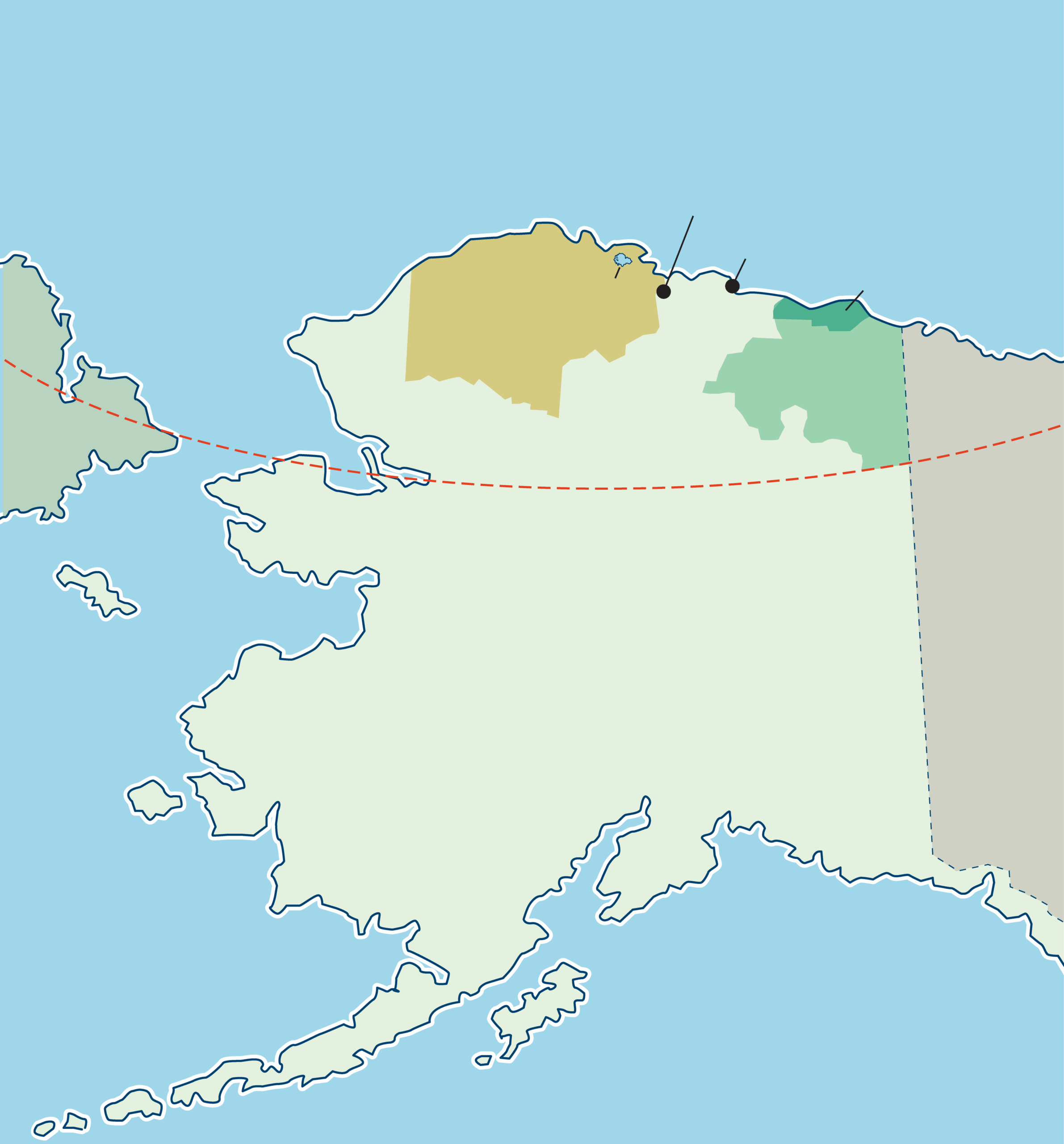
Arctic Ocean
Beaufort
Sea
Nuiqsut
Chukchi
Sea
Prudhoe Bay
Coastal Plain
Teshepuk Lake
Western Arctic(National Petroleum
Reserve-Alaska)
Arctic National Wildlife Refuge
Russia
Arctic Circle
Canada
Alaska
Bering
Sea
Gulf of
Alaska
Peter Hoey for Earthjustice
The Western Arctic (also called the "National Petroleum Reserve-Alaska" or NPR-A) is home to many millions of acres of specially designated lands because of their ecological and cultural importance. This includes Teshekpuk Lake, a wetlands area critical for migratory birds from around the world.
The Arctic National Wildlife Refuge is the country’s largest national refuge and home to diverse wildlife and Indigenous communities. Within the Arctic Refuge’s Coastal Plain are the calving grounds of the Porcupine Caribou herd.
Protecting the Arctic Wildlife Refuge Coastal Plain
Our Fight:
On Jan. 13, we restarted our long-running legal fight to protect the 1.56-million-acre Coastal Plain of the Arctic Refuge from unlawful oil drilling. We originally sued the first Trump administration in 2020 when it opened this sacred area to oil drilling and held a lease sale. We’re back in court after the second Trump administration last October issued a decision reopening the entire Coastal Plain to oil leasing and reactivated the oil drilling leases sold during the first Trump administration.
When it opened the Refuge’s Coastal Plain to oil and gas development, the administration failed to ensure that threatened Southern Beaufort Sea polar bears and the habitat they depend on will not be harmed. The administration’s actions violate several core environmental laws, including the Endangered Species Act (ESA).
Our lawsuit — filed with NRDC, who is co-counsel, and representing NRDC, the Center for Biological Diversity, and Friends of the Earth — challenges these illegal leasing programs under NEPA, the ESA, the National Wildlife Refuge Act, the Wilderness Act, the Alaska National Interest Lands Act, and the Administrative Procedure Act.
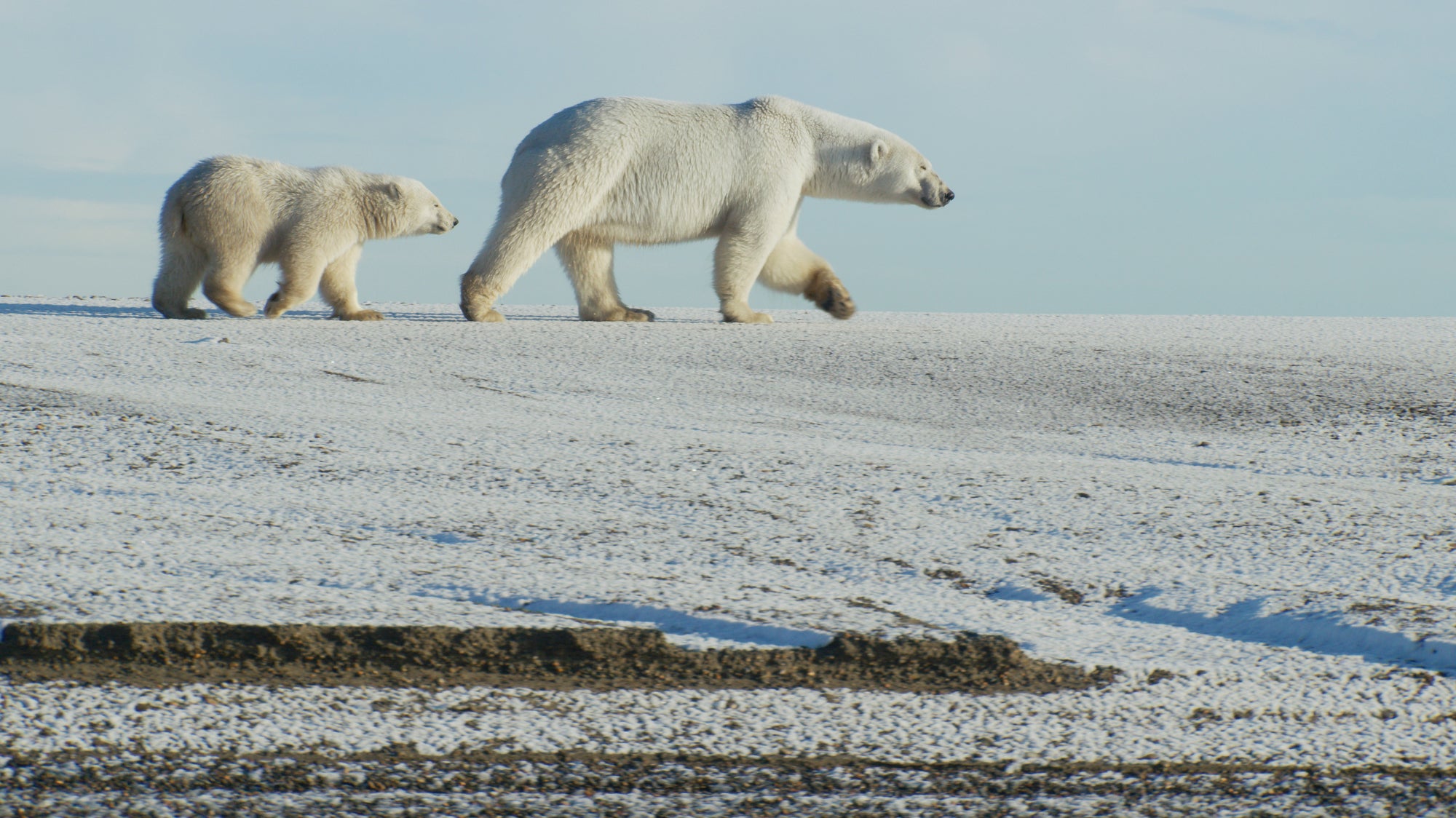
Polar bears on the coast of the Arctic National Wildlife Refuge. (Florian Schulz / protectthearctic.org)
What’s at stake:
The Coastal Plain is irreplaceable wildlife habitat and sacred Indigenous land.
This leasing program poses considerable risks to polar bears, including the loss of important denning habitat, disturbance of denning mothers, and increased human-bear conflicts. The government acknowledges that the program is likely to lead to the death of dozens of polar bear cubs. Yet it gave its stamp of approval and declined to impose adequate protective measures for the bears.
The Coastal Plain is also the calving ground for the Porcupine Caribou Herd and supports millions of migratory birds, marine mammals, muskox, fish, and more. For the Gwich’in people who have relied on the caribou herd since time immemorial, this land is spiritually and culturally essential. The leasing plan would threaten these irreplaceable resources.
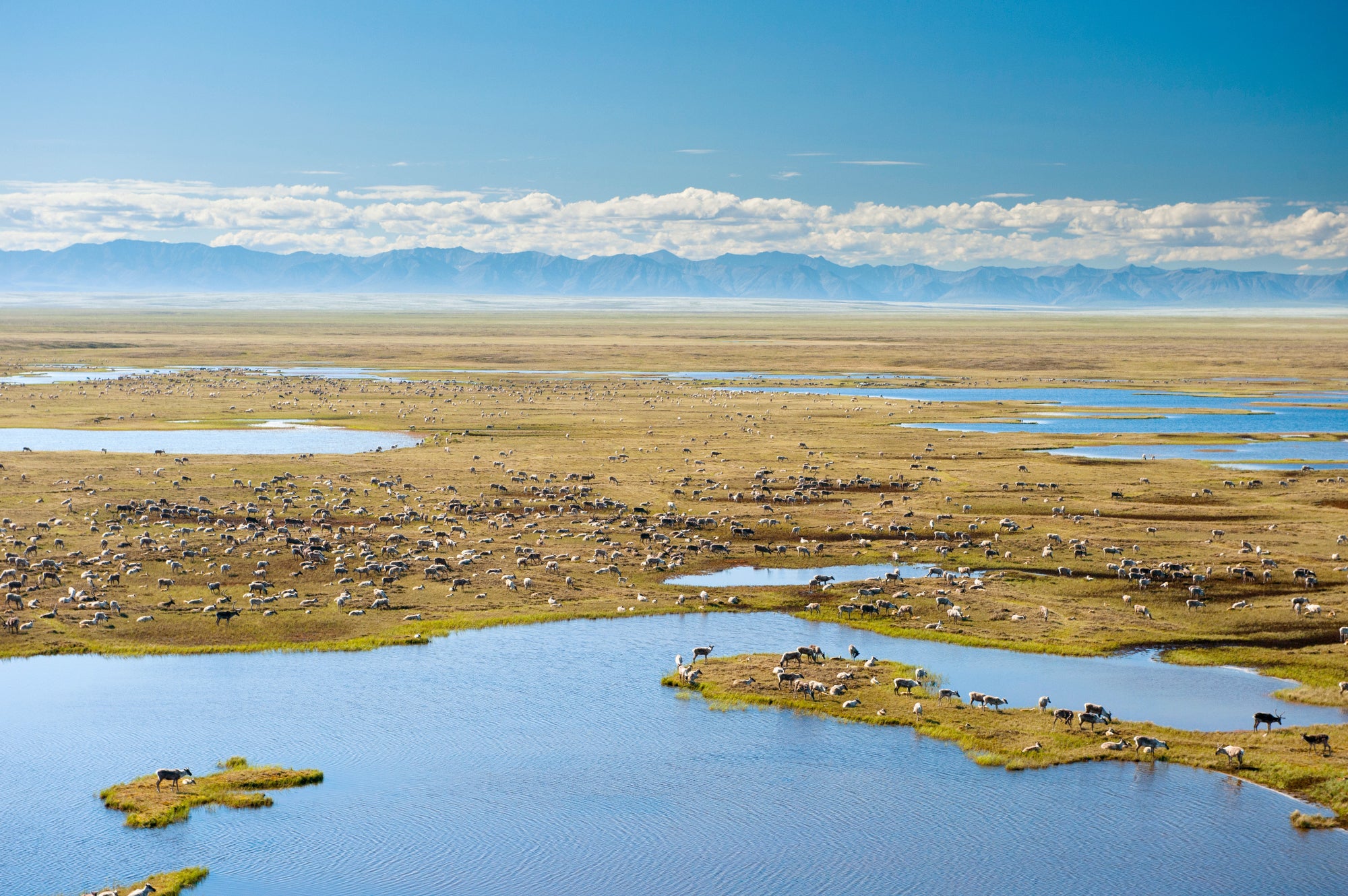
Caribou on the coastal plane of the Arctic National Wildlife Refuge in Alaska. (Florian Schulz / protectthearctic.org)
Stopping Western Arctic Oil Exploration
Our Fight:
In the Western Arctic, a vast public land area west of the Arctic Refuge, we are suing the federal government over the BLM’s 5.5-million-acre lease sale announced in February 2026. The sale offers oil companies ecologically and culturally significant lands around Teshekpuk Lake and along the Colville River that have long been protected from oil and gas extraction. The suit also challenges the sale’s underlying management plan, re-adopted from the first Trump administration, that would open 82% of the Western Arctic to oil and gas leasing.
Last year, we also sued to stop harmful exploration in the Western Arctic. We were not successful in obtaining a preliminary injunction that would have immediately stopped the project this winter, but that lawsuit is still pending.
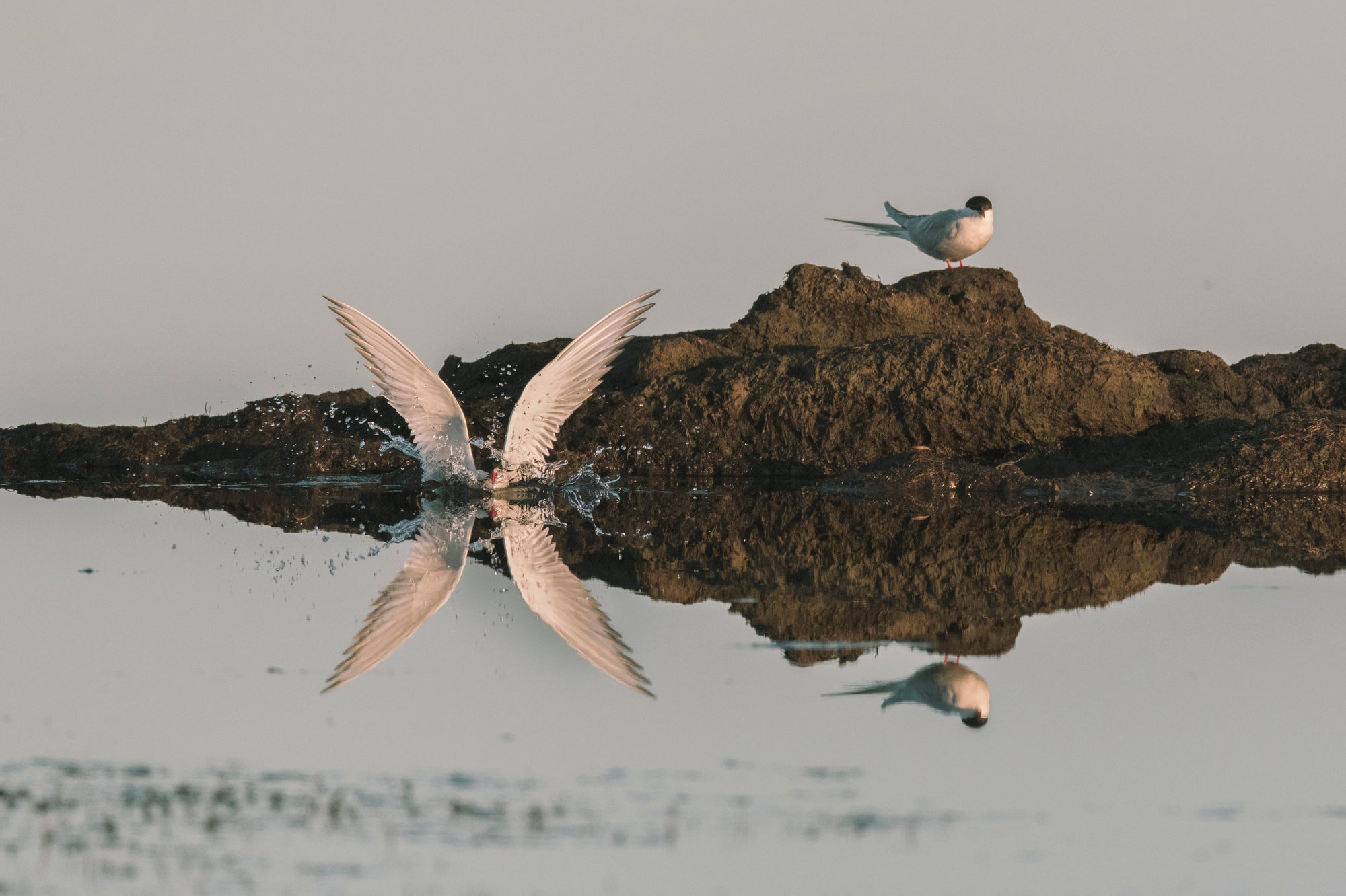
Two terns in the Western Arctic, near Lake Teshekpuk. (Kiliii Yuyan for Earthjustice)
What’s at stake:
The Western Arctic is the nation’s largest intact tract of public land, and it remains largely undeveloped. The region is home to iconic and imperiled wildlife species like polar bears and seals that depend on sea ice and includes habitat for caribou and other species that are central to the cultural practices and food security of nearby Indigenous communities. The Western Arctic also attracts migratory birds from around the globe, and hosts some of the highest densities of breeding shorebirds in the world.
ConocoPhillips’ exploratory drilling program would subject hundreds of square miles to a caravan of industrial traffic, including bulldozers and 90,000-pound trucks. And by approving a management plan that allows oil and gas leasing on most lands in the Western Arctic, including in ecologically sensitive areas that have previously been off limits to oil drilling, this administration is prioritizing fossil fuel production over all other uses of these lands.
Earthjustice will continue fighting in court to keep oil and gas interests from destroying the Arctic and fighting fossil fuels that are driving the climate crisis. We stand ready to defend against unlawful actions by this administration.
Your donations today keep us in court tomorrow.
Opened in 1978, our Alaska regional office works to safeguard public lands, waters, and wildlife from destructive oil and gas drilling, mining, and logging, and to protect the region's marine and coastal ecosystems.